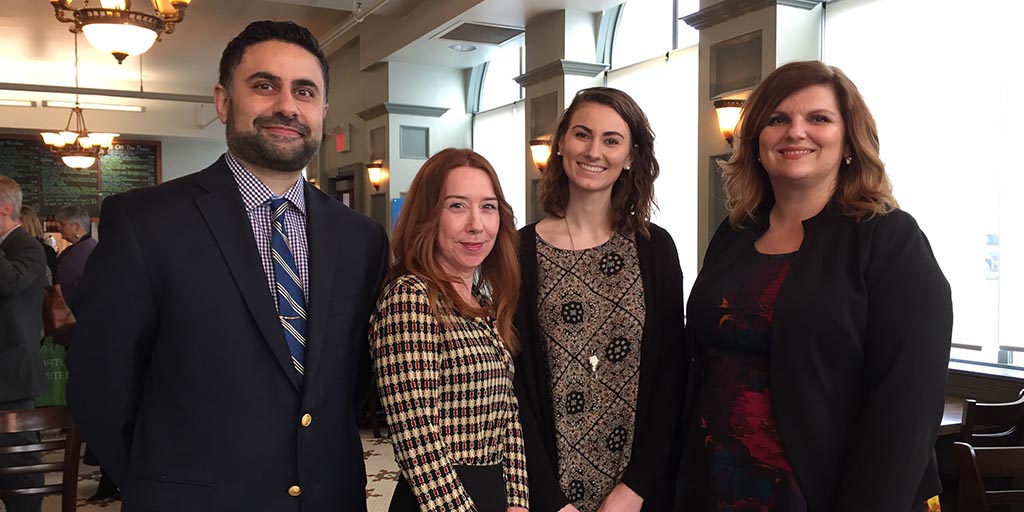LHSC provides pilot program
 CREDIT: KATHY LEBLANC
CREDIT: KATHY LEBLANCFrom left: Dr. Javeed Sukhera, physician lead, Child and Adolescent Mental Health; Jill Lynch, project facilitator, Transition Age Project; Scarlett Davidson, LHSC Youth Mental Health Advisory Council member; and Julie Trpkovski, vice president, Mental Health and Emergency Services.
Noticing a gap in the mental health care system, the London Health Sciences Centre (LHSC) in a collaboration with Addiction Services of Thames Valley and mindyourmind, has brought forth Cornerstone Counselling.
The self-referral, after hours, drop in service is geared towards 16 to 25-year-olds.
“It was known at the time that this is a time of greatest need yet the system is at its weakest and the idea was not just to create youth services, but reimagine how we deliver care,” said Dr. Javeed Sukhera, LHSC physician lead, Child and Adolescent Psychiatry.
There are two reasons, according to Sukhera, this age has the greatest need.
One being that people who might be connected to existing services as a child are often not well transitioned into new services once they reach adulthood and therefore fall through the cracks.
The second reason being that this is a time that a lot of people start presenting mental health difficulties for the first time.
“We started the project off with a deep dive really listening to what's happening with youth and with care givers and also with our community partners,” Sukhera said. “What we heard loud and clear is that everyone kind of agreed on the challenges of the current system and they also agreed on features of a future system.”
And the future system is now, with the official launch of Cornerstone Counselling being celebrated recently at a gathering inside the Youth Opportunities Unlimited (Y.O.U.) Made It Caf�.
What is so unique about this program is the fact that it is a collaboration between the hospital system and the community system.
“[We] bring expertise clinically from the hospital and place it in a community site where other services�are available,” Sukhera said. “We have social work, addiction support, peer support, psychiatry and brief solution-focused counselling.”
The project was made possible by funding provided through London Health Sciences Foundation by the London Community Foundation, the LHSC Auxillary, Great West Life, London Life and Canada Life.
Sukhera hopes to see the program excel in the community, but said the LHSC is all ears for people who may have suggestions to make it even better.
“We are not just looking to engage community and youth in a token way, but an authentic way and that's how we shaped and delivered this service and that's how we hope to make sure that it's staying true to its intentions.














